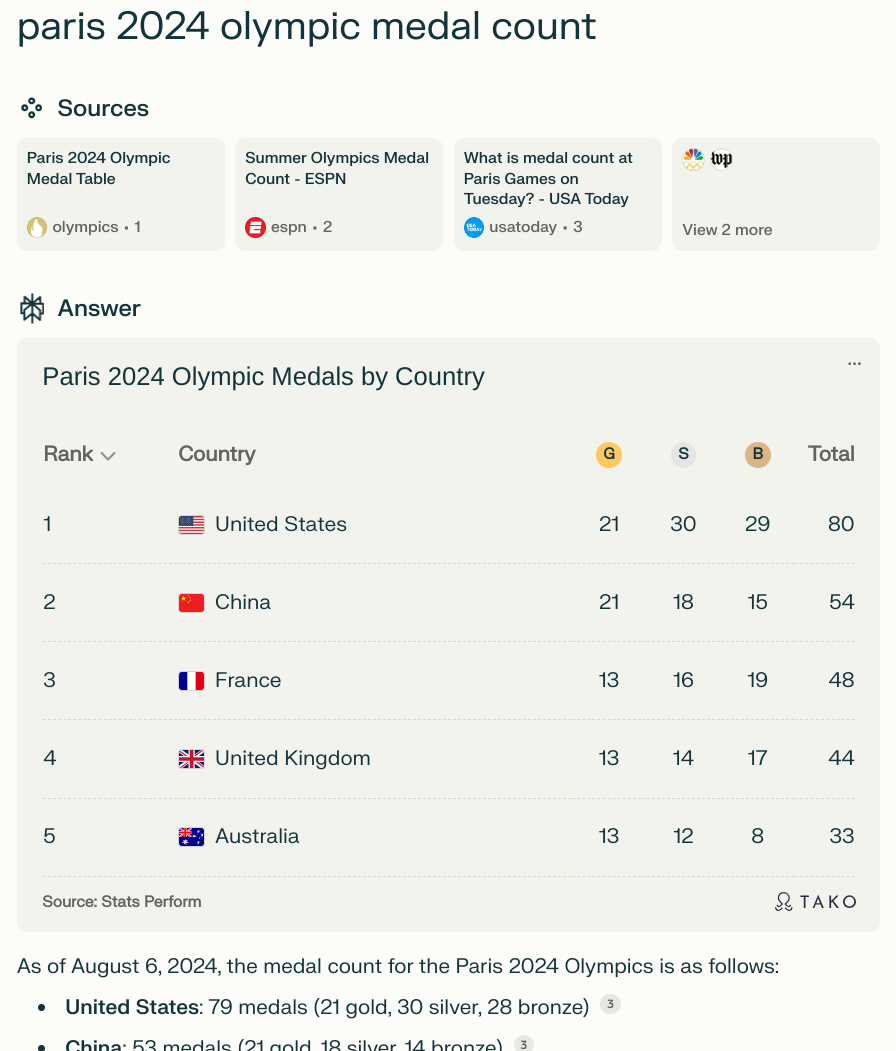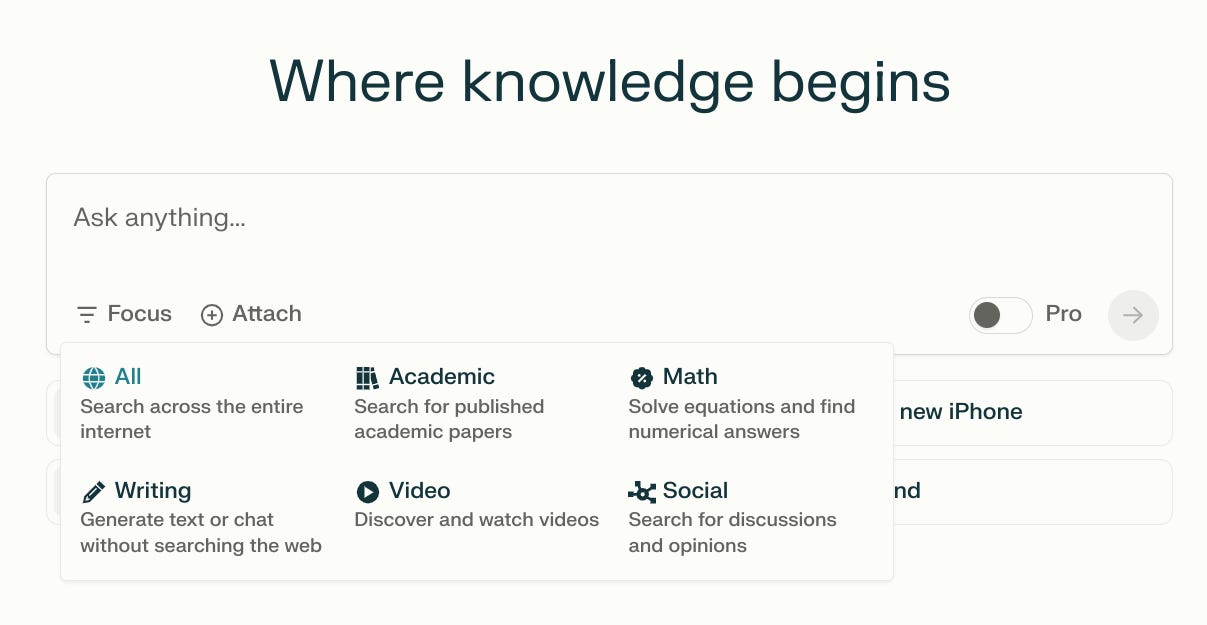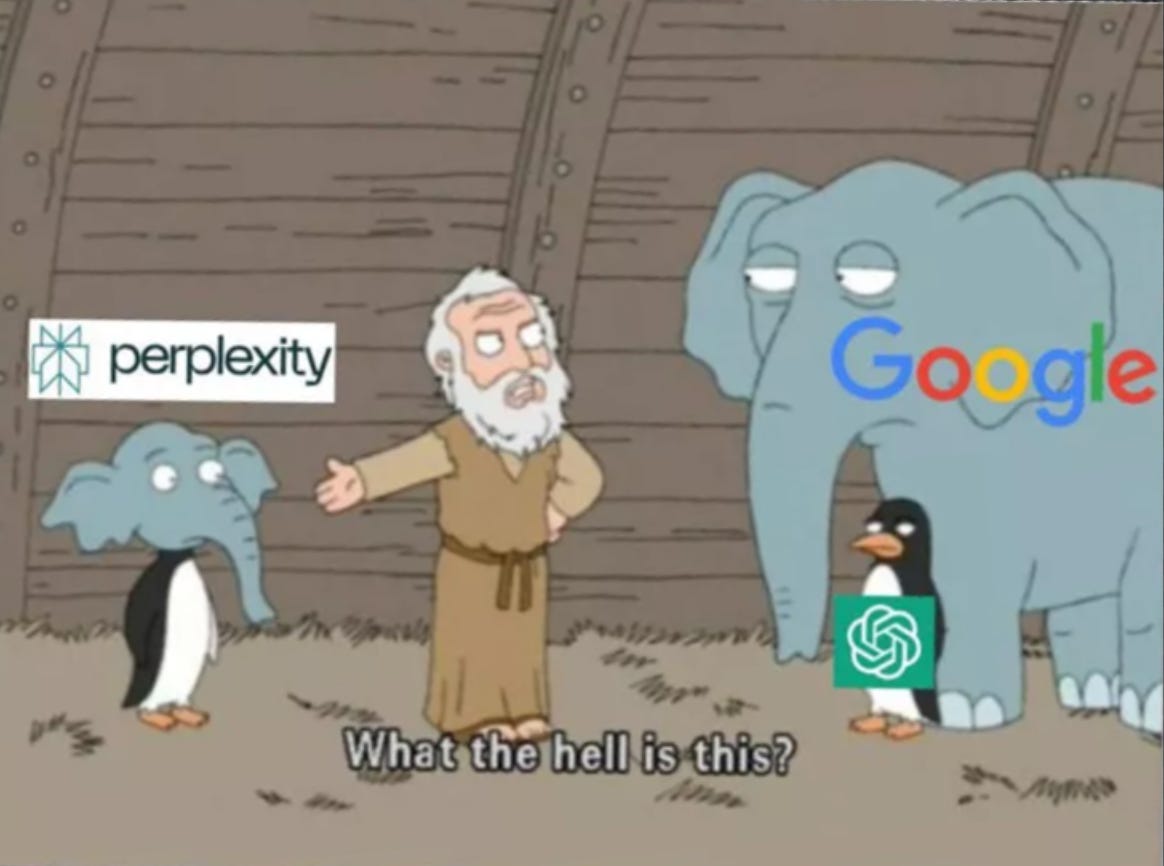Revolutionizing Research and Search in the AI Era
How Perplexity AI's "Answer Engine" Challenges Google and Redefines Information Access
When ChatGPT first burst onto the scene, Google went into full-on panic mode. We’re talking hair-on-fire, layoff-hundreds-of-employees panic.
Why?
Google saw ChatGPT as a threat to its search engine business—Google’s bread and butter.
But once the dust settled, it became clear that ChatGPT and its ilk filled a different need and niche from search engines. In part because they can’t be trusted to give factual answers. ChatGPT hallucinates too much. Too often, it’s a “liar, liar, pants on fire.”
Sure, ChatGPT can help with a high school English paper, but less so if you’re doing serious academic research.
But what if AI could access all of the internet and cite multiple sources for the information it’s presenting?
Thus thought former Google and OpenAI researcher Aravind Srinivas, who founded Perplexity AI to do just that.
Search vs. answer
Perplexity bills itself as an “answer engine,” or even a “knowledge discovery engine,” rather than a search engine. Its tagline, “Where knowledge begins,” hints at Srinivas’ philosophy that there’s no end to knowledge—it can always expand and grow.
Perplexity isn’t trying to replace Google Search or “play Google at their own game.” Rather, the idea is to rethink the standard search engine UI, replacing a list of links with factual answers to questions and relevant follow-up questions to help keep the knowledge flowing and expanding.
And while Srinivas recognized that Perplexity may still hallucinate on some queries, the gamble is that as the technology improves and gets cheaper and as hallucinations are reduced, they’ll be able to do what Google can’t or doesn’t want to do—provide accurate answers without a list of links.
The GenAI arms race
This idea of supporting generative AI query responses with links to the source isn’t unique to Perplexity. In fact, Microsoft’s Copilot has had links since its launch in 2023, and now even ChatGPT adds links to sources on some responses.
But Perplexity still has the upper hand in that it prioritizes trustworthiness by sourcing its information from selected reputable sources instead of weighing equally any and all results from a massive index.
This makes it the best choice for online research.
AI research
Maybe it’s because its founders were inspired by the academic idea that everything must be backed by a source, but Perplexity is the #1 AI tool for research.
Its ability to aggregate and synthesize information from various trustworthy sources makes it a superior tool compared to other GenAI tools.
The use cases are vast, for example:
Competitor analysis: getting detailed information about competitors, including recent product launches and market strategies.
Academic research: Students and researchers can quickly find background information, relevant papers, and key concept summaries using Perplexity for their studies.
Technology forecasting: Tech enthusiasts can use it to stay informed about emerging technologies, their impacts, and adoption trends.
Cryptocurrency trends: Investors can keep up with the latest crypto trends, including emerging coins and regulatory changes, with concise market summaries.
Real estate insights: Perplexity can offer up-to-date information on markets worldwide. Users can quickly learn about property laws, popular areas for investment, and current market trends.
Finding coupons: Because Perplexity can access newer information, it can even retrieve functional coupon codes for seemingly any website. (link to vid)
Perplexity fetches info that’s so up-to-date that it even gave me an accurate (mostly) Olympic medal count:
Compare that to ChatGPT’s attempt:
You can see that ChatGPT is trying to support its data with a link to a source. But the source isn’t so good and it’s not able to make sense of the data the same way the Perplexity can.
It’s hallucinating so badly that it has Russia in 3rd place in the medal count even though Russia isn’t participating in the games.
And yet, Perplexity still has one mistake—an extra bronze medal for the USA in the table, even though the textual data below the table is correct.
For this kind of info, Google Search is still best. But it does demonstrate how current Perplexity’s data is.
Getting in focus
Perplexity has a user-friendly and intuitive UI. There’s a great feature called Focus that lets you narrow your results. It’s pretty self-explanatory.
Depending on what you’re looking for, there are times when it seems that Perplexity feels like a Google Search/ChatGPT hybrid.
And yet, even Perplexity still isn’t a serious threat to Google search … not yet anyway.
Moreover, Google's business model extends far beyond search, with the tech giant generating substantial revenue from its cloud services, YouTube, and other ventures, providing a robust financial cushion against potential search competitors.
The hype and the heat
Perplexity's rise hasn't been without controversy.
For example, there are accusations that the platform ignores robots.txt files, which is supposed to allow website owners to specify which parts of their sites should not be crawled or indexed.
This practice has allowed Perplexity to access and summarize content from behind paywalls, raising serious questions about copyright infringement and fair use.
When confronted with these allegations, Perplexity claimed that the company wasn't directly ignoring robots.txt, but rather using third-party scrapers that did so, failing to address the ethical implications of knowingly benefiting from such practices.
Final thoughts
As it currently stands, Perplexity’s value lies in its ability to combine advanced GenAI with real-time information retrieval, providing users with concise, accurate answers backed by reliable citations, making research efficient and accessible.
Perplexity has seemingly endless use cases. Give it a try and let me know if you discover any new and interesting ways to use it.






